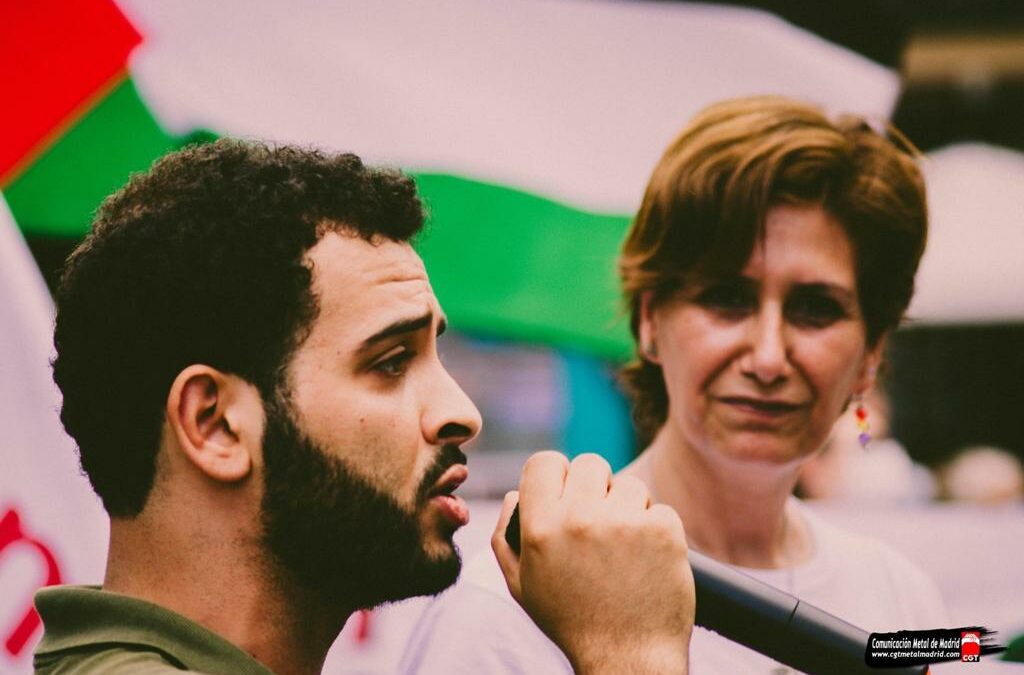Mohammed Khatib, a member of the Executive Committee of the Masar Badil, the Palestinian Alternative Revolutionary Path Movement, said that the fighing in the Ain el-Helweh Palestinian refugee camp in Saida, south Lebanon, is part of the continuous process of destruction and liquidation of Palestinian rights that began with the official Palestinian abandonment of the masses in exile and diaspora and heir national and human rights, under the framework of the Oslo accords. In fact, he said, what is happening in the camp is an expression of a crisis that is greater than a “passing conflict between armed men.” It serves only the Zionist entity, the forces of Oslo and all enemy forces arrayed against the Palestinian people in Lebanon and throughout the region.
Khatib, born in Ain el-Helweh camp, said that the Palestinian refugee camps in Lebanon are isolated and have been exploited and impoverished for decades, as they live in a state of oppression and comprehensive siege, both internally and in their broader regional surroundings, and have witnessed massive economic, social and political transformations after the Zionist invasion in 1982 and the massacres it committed and the siege the camp experienced in 1985.
Khatib noted that the camps have been gradually transformed from advanced bases of revolution, resistance and national culture into belts of misery and poverty, and have become fertile ground for the development of armed currents that do not want to fight the Zionist enemy as much as they want to impose their authority in the camp, although there are exceptions.
He emphasized that there are no quick solutions to the crisis situation in the camps. Instead, he said, what is required is to support the youth with national and revolutionary awareness, to confront the liquidation project established by the Oslo Accords, and to work to rebuild the Palestinian liberation movement’s revolutionary project by restoring the confiscated voice of the masses of the diaspora and resuming their role in the fight against the Zionist enemy for return and liberation. The situation inside occupied Palestine ’48, of daily violent crime and the spread of the phenomenon of criminal gangs, which has claimed hundreds of Palestinian lives, also serves the same goal, the destruction of the Palestinian cause and the dismantling and isolation of the Palestinian people.
Khatib noted that there are systematic and well-known racist and exclusionary policies practiced by the Lebanese authorities for decades, as the Palestinians in Lebanon are deprived of their most basic rights, including their right to work and build their homes, and the confiscation of their civil rights. He further pointed out that we urgently need to define the function and proper direction of the Palestinian weapons in the camps, and to build national institutions that provide health care, education and other services
Khatib stressed that the continuation of the current crisis and its exacerbation in the Palestinian camps will not serve the stability and security of Lebanon, as some believe, and will negatively affect the entire Lebanese and Arab situation.

